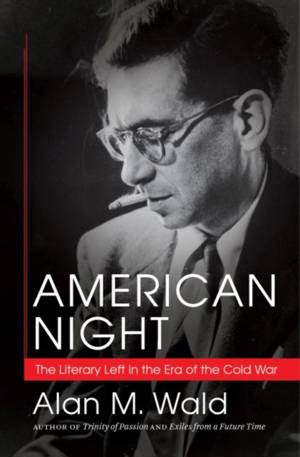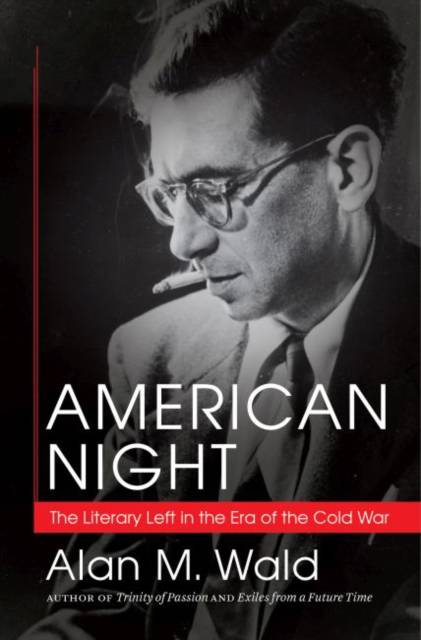
- Afhalen na 1 uur in een winkel met voorraad
- Gratis thuislevering in België vanaf € 30
- Ruim aanbod met 7 miljoen producten
- Afhalen na 1 uur in een winkel met voorraad
- Gratis thuislevering in België vanaf € 30
- Ruim aanbod met 7 miljoen producten
Zoeken
€ 61,45
+ 122 punten
Omschrijving
American Night, the final volume of an unprecedented trilogy, brings Alan Wald's multigenerational history of Communist writers to a poignant climax. Using new research to explore the intimate lives of novelists, poets, and critics during the Cold War, Wald reveals a radical community longing for the rebirth of the social vision of the 1930s and struggling with a loss of moral certainty as the Communist worldview was being called into question. The resulting literature, Wald shows, is a haunting record of fracture and struggle linked by common structures of feeling, ones more suggestive of the "negative dialectics" of Theodor Adorno than the traditional social realism of the Left.
Establishing new points of contact among Kenneth Fearing, Ann Petry, Alexander Saxton, Richard Wright, Jo Sinclair, Thomas McGrath, and Carlos Bulosan, Wald argues that these writers were in dialogue with psychoanalysis, existentialism, and postwar modernism, often generating moods of piercing emotional acuity and cosmic dissent. He also recounts the contributions of lesser known cultural workers, with a unique accent on gays and lesbians, secular Jews, and people of color. The vexing ambiguities of an era Wald labels "late antifascism" serve to frame an impressive collective biography.
Establishing new points of contact among Kenneth Fearing, Ann Petry, Alexander Saxton, Richard Wright, Jo Sinclair, Thomas McGrath, and Carlos Bulosan, Wald argues that these writers were in dialogue with psychoanalysis, existentialism, and postwar modernism, often generating moods of piercing emotional acuity and cosmic dissent. He also recounts the contributions of lesser known cultural workers, with a unique accent on gays and lesbians, secular Jews, and people of color. The vexing ambiguities of an era Wald labels "late antifascism" serve to frame an impressive collective biography.
Specificaties
Betrokkenen
- Auteur(s):
- Uitgeverij:
Inhoud
- Aantal bladzijden:
- 432
- Taal:
- Engels
Eigenschappen
- Productcode (EAN):
- 9781469618814
- Verschijningsdatum:
- 1/08/2014
- Uitvoering:
- Paperback
- Formaat:
- Trade paperback (VS)
- Afmetingen:
- 155 mm x 231 mm
- Gewicht:
- 635 g

Alleen bij Standaard Boekhandel
+ 122 punten op je klantenkaart van Standaard Boekhandel
Beoordelingen
We publiceren alleen reviews die voldoen aan de voorwaarden voor reviews. Bekijk onze voorwaarden voor reviews.











